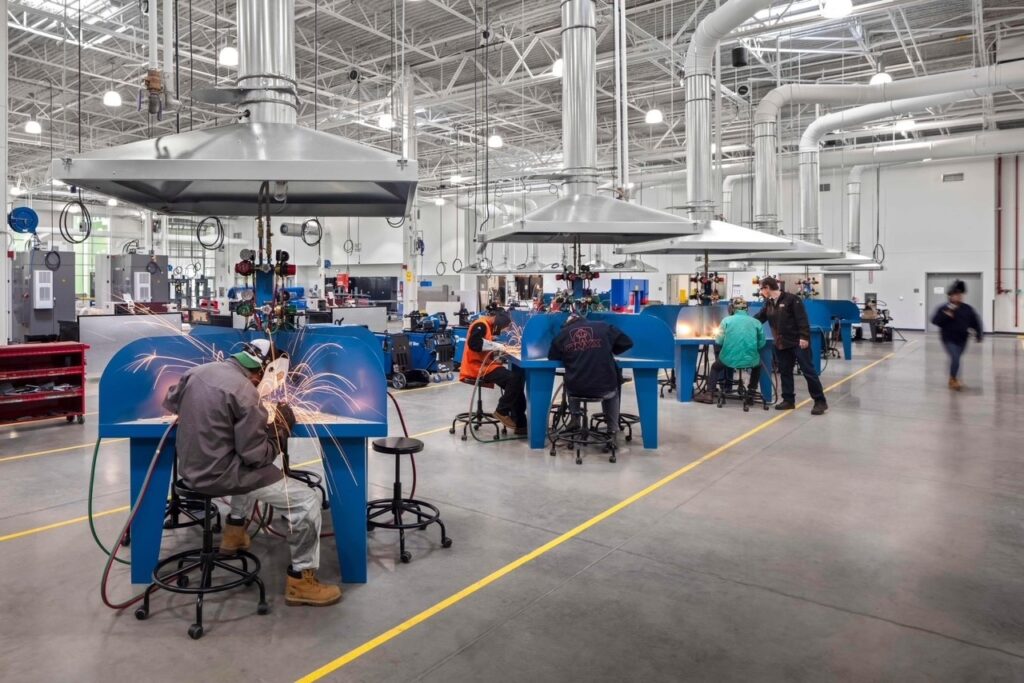This summer, leadership teams from eight colleges convened in Los Angeles for an intensive retreat focused on advancing racial equity at their institutions. The colleges are part of the Racial Equity Leadership Academy, a joint initiative from Achieving the Dream and the USC Race and Equity Center that supports teams of leaders as they develop transformative racial equity change efforts on campus.
We talked to the RELA teams about their motivation behind joining the program, their goals for their institutions, and how they hope this work will affect their broader communities. Keep reading to learn more about College of Lake County and Community College of Philadelphia.
This is the second installment in a three-part series — read part one here.
College of Lake County
College of Lake County (CLC) is located in Grayslake, Illinois, about 45 miles north of Chicago. The institution serves more than 20,000 students and joined the ATD Network in 2019.
Through its participation in RELA, the college aims to develop a holistic, data-informed assessment of diversity, equity, and inclusion (DEI) on campus. A 2021 survey revealed that a majority of students believe racism exists on campus, and that 41% of students and 51% of faculty have witnessed some degree of racism at the institution.
For Jesse Morales, director of DEI, success is defined by creating equitable experiences for students, not just generating equitable outcomes. “For example, a Latinx student can graduate with a 4.0 GPA and enter the workforce. This is a great outcome,” he said. “However, if that same student experienced racism or was a victim of microaggressions while at CLC then they had an inequitable experience. Are good outcomes via inequitable experiences really considered a success?” Morales believes an explicit focus on racial equity and the experiences of BIPOC students is critical to fostering a culture of belonging and well-being for students of color on campus.
CLC is particularly focused on supporting Black and Latinx students and employees. Lorri Scott, legal studies faculty and co-chair of the diversity council, said the recent departure of a large number of BIPOC employees is a red flag that needs to be examined and addressed. By developing a robust climate monitoring tool, CLC aims to foster a climate where BIPOC employees are seen and understood. Leadership has already taken steps toward this goal with the creation of a nine-month racial equity and antiracism training that will empower leaders to identify racial equity goals and take antiracist actions on campus.
“By addressing culture and climate at CLC, compounded with our student success work, we will close equity gaps and support local industries in their workforce needs, but most importantly support our BIPOC students in earning a postsecondary credential that will provide them with economic upward mobility.”
– Dr. Lori Suddick, President, College of Lake County

Photo courtesy of College of Lake County
Community College of Philadelphia
The Community College of Philadelphia (CCP) is an urban institution serving about 19,000 students. Involved in the ATD Network since 2006, CCP has been a Leader College for over two decades, first earning the designation in 2011.
To combat persistent equity gaps in key performance indicators for students, the institution recently added diversity, equity, and inclusion as a sixth pillar in its strategic plan. Dr. Alycia Marshall, provost and vice president for academic and student success, said that being part of the second RELA cohort will give CCP leaders the opportunity to support this new strategic pillar and more closely examine systemic barriers at the institution. In particular, CCP leadership is focused on improving outcomes for Black men.
Under CCP’s strategic equity pillar, one of the key objectives is to “become an antiracist college.” The college is a Minority-Serving Institution, with 70% of its student body identifying as racial minorities, but as Leila Lawrence, director and Title IX coordinator in the Office of Diversity, Equity and Inclusion, pointed out, truly becoming an antiracist college involves more than diversity.
“We must turn a mirror on ourselves and review all aspects of college operations, including, but not limited to, policies, procedures, and pedagogy to ensure that as an institution we aren’t operating in ways that intentionally or unintentionally adversely impact our students of color,” Leila said.
The RELA team at CCP hopes that the racial equity change efforts they develop in partnership with ATD will result in improved job attainment and college transfer outcomes that directly impact students’ financial futures and decrease poverty in the Philadelphia community at large.
“As a queer woman of color, I have seen the impact of institutional racism and oppression firsthand and know its psychological and social effects. As a leader, I think that a focus on real, sustainable strategies to promote and establish racial equity is critical for an institution that has adopted a DEI strategic pillar as a means to becoming an antiracist institution.”
– Dr. Amy Birge-Caracappa, Director of Assessment, Office of Assessment and Evaluation
The Racial Equity Leadership Academy (RELA) is an intensive institute designed to support teams of leaders as they develop bold, strategic racial equity plans and implement actionable change efforts at their institutions. RELA is made possible in part by the generous gift given to ATD from philanthropist MacKenzie Scott and additional foundations. Learn more

